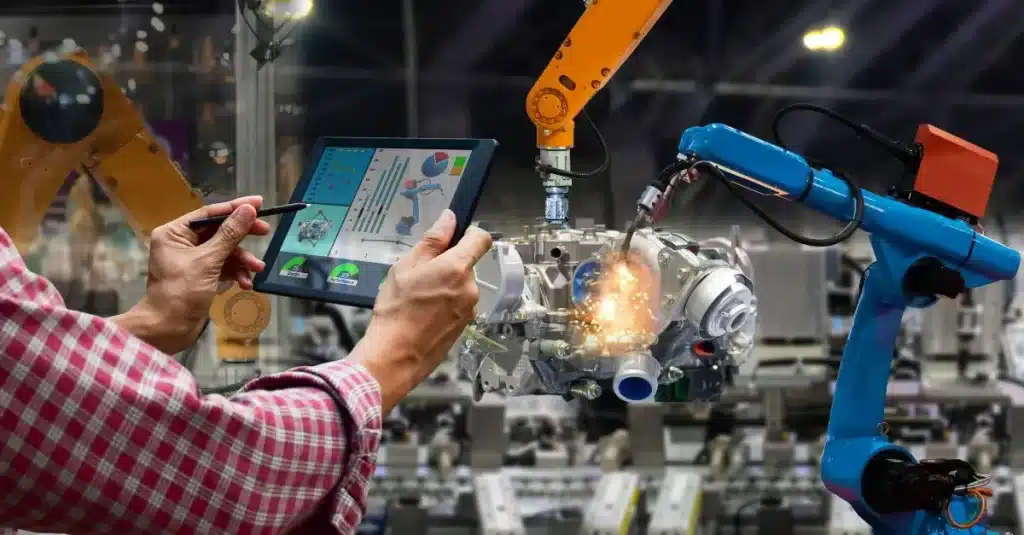In today’s rapidly evolving world, the integration of AI for warehouse product QC has become a game-changer. As industries strive to enhance efficiency and accuracy, the role of Artificial Intelligence in Quality Control can’t be overstated. This article delves into how AI is revolutionizing product inspection in warehouses and the myriad benefits it offers.

Understanding AI in Quality Control
AI stands for Artificial Intelligence, a technology that mimics human intelligence to perform tasks. In the context of warehouse product QC, AI systems are designed to identify defects, ensure product quality, and streamline operations. This ensures that only top-quality products reach consumers.
The Importance of Quality Control in Warehouses
Warehouses are bustling hubs of activity. With thousands of products moving in and out daily, maintaining consistent quality is crucial. Quality Control ensures that products meet specific standards, reducing the risk of returns, recalls, and customer dissatisfaction.
Challenges in Traditional Quality Control
Traditional Quality Control methods often rely on manual inspections. While effective, these methods can be time-consuming and prone to human error. As product volumes increase, so does the potential for oversight.
AI: A Solution to Traditional Challenges
Integrating AI in warehouse product QC addresses many challenges faced by traditional methods. With AI, inspections become faster, more accurate, and less labor-intensive. This not only improves product quality but also reduces overhead costs.
How AI Enhances Warehouse Operations
The introduction of AI in warehouses offers numerous benefits:
1. Improved Accuracy
AI systems are designed to detect even the most minute defects. This ensures that only products meeting stringent standards are distributed.
2. Increased Efficiency
By automating the inspection process, AI reduces the time required for quality checks. This speeds up warehouse operations, ensuring timely product deliveries.
3. Cost Savings
While the initial investment in AI technology may be high, the long-term savings in reduced labor costs and fewer product recalls are significant.
Implementing AI in Warehouse QC
For warehouses looking to adopt AI in their Quality Control processes, several steps are crucial:
1. Assessing Current QC Processes
Before implementing AI, it’s essential to evaluate existing Quality Control processes. This helps identify areas where AI can be most beneficial.
2. Choosing the Right AI System
There are various AI systems available, each with unique features. It’s crucial to select a system that aligns with warehouse needs and product types.
3. Training and Integration
Once an AI system is selected, staff training is crucial. Employees should understand how the system works and how to address potential issues. Integration should be seamless, ensuring minimal disruption to operations.
Case Studies: Successful AI Integration
Many warehouses globally have successfully integrated AI in their Quality Control processes. For instance, companies like Qualitech have seen significant improvements in product accuracy and operational efficiency.
The Future of AI in Warehouse QC
The future looks promising for AI in warehouse product QC. As technology continues to advance, we can expect even more sophisticated systems capable of handling complex inspections with ease.
Continuous Learning and Adaptation
AI systems continually learn and adapt, improving their accuracy over time. This ensures that warehouses stay ahead of potential quality issues.
Integration with Other Technologies
In the coming years, we can expect AI to integrate with other technologies, such as IoT and blockchain, further enhancing Quality Control processes.
Conclusion
In conclusion, the integration of AI for warehouse product QC is transforming the industry. With its numerous benefits, from improved accuracy to cost savings, it’s clear that AI is the future of Quality Control. Warehouses that embrace this technology today will undoubtedly reap the rewards tomorrow.

FAQs
1. What is the role of AI in warehouse QC?
AI helps automate and streamline Quality Control processes, improving accuracy and efficiency.
2. How does AI improve accuracy in product inspections?
By using advanced algorithms, AI can detect minute defects that might be missed by human inspectors.
3. Are there any challenges in implementing AI in warehouses?
While the benefits are numerous, challenges include the initial investment cost and the need for staff training.
This article contains affiliate links. We may earn a commission at no extra cost to you.

